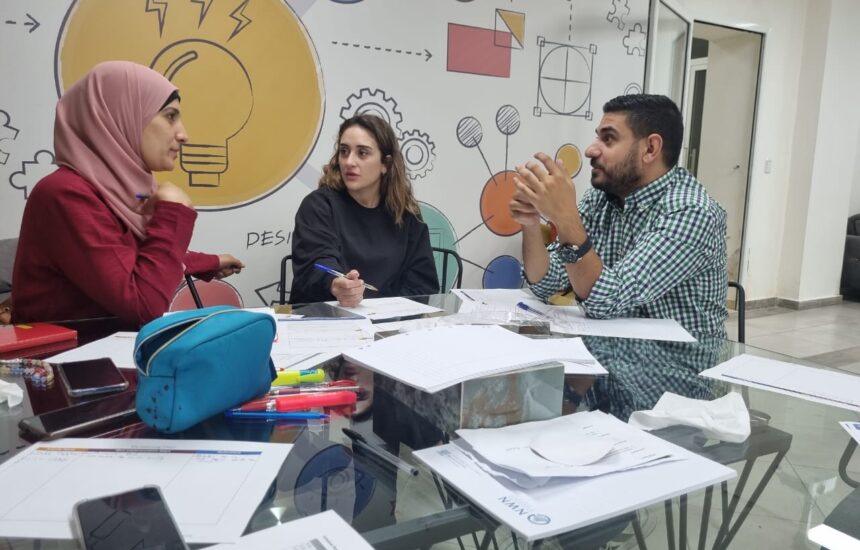New Guide Supports Holistic Learning in Lebanon: Providing a Roadmap for Educators to Support Each Other


A new guide offers resources that promote holistic learning for students in Lebanon by supporting holistic wellbeing, innovation, learning and leadership among teachers.
The guide was co-developed by the Quality Holistic Professional Learning in Lebanon (QHPLL) project team across Lebanon and the Center for Professional Learning staff at Childhood Education International.
It shares processes and learnings from educators as they formed and sustained communities of practice with colleagues and organizations across Lebanon. It outlines key takeaways, recommendations, challenges, and resources that other educators in Lebanon can draw from to develop similar communities of practice.
The QHPLL project sought to enhance inclusive, equitable, and holistic learning for children across Lebanon through the co-creation of professional learning and leadership spaces for educators. The project supported teachers in Lebanon as they contributed to transformative change in their schools and communities.
Educators representing public, private, semi-private, INGO, and community schools across Lebanon were selected to be QHPLL Fellows. At the beginning of the project, they met to identify learning goals and needs, consider differences in their contexts, and familiarize themselves with open educational resources that had been developed as part of a related project by some continuing members in Lebanon and colleagues in Kenya and Niger.
Then they created communities of practice with their peers, school and program leaders, and local partners, with a focus on sharing resources, discussing their teaching practice, and finding support and understanding from others experiencing similar challenges, setbacks, and triumphs.
Twenty-eight communities of practice were formed, and around 1,100 teachers in all eight governates of Lebanon engaged with the project, growing their work in social and emotional learning/psychosocial support, asset-based pedagogies, and differentiated instruction.
“The real transformation began when we started to think beyond the confines of traditional professional development. Inspired by the concept of Communities of Practice, we aimed to create spaces where teachers could connect on a more personal level, share their experiences, and collaborate on finding solutions to their challenges.”
– QHPLL Project Fellow
The new guide shares learnings from this process to support other educators in Lebanon – and around the world – in creating and sustaining similar communities of practice focused on holistic learning.
Some takeaways include:
The guide provides steps and recommendations for establishing communities of practice and offers guiding questions for each step of the formation cycle. It also provides a template that can be adapted to serve as a charter for a community of practice and shares five cyclical steps that communities of practice are likely to experience.
The guide highlights stories and experiences from communities of practice across Lebanon and notes an overwhelming sense of excitement among the educators who joined these communities:
“Never have we ever had the chance to come together, us as teachers, to discuss what we are doing in our classrooms, and if what we are doing is working well or not. This is the first time we discuss our challenges, and I am happy to hear from my colleagues and to have my voice heard as well.”
– Grade 8, Biology Teacher in an SEL CoP session
Additionally, the guide outlines shared practices that were successful in the communities of practice and lists tools that can be used to support wellbeing, build connection, promote collaborative learning, support thinking and active listening, and encourage online learning and interactivity.
The guide identifies the great potential of communities of practice in Lebanon to support educators and grow holistic learning for all students. Despite the challenges presented by the current political climate and regional tensions, it highlights opportunities for future growth and positive impact on educators working together with each other in Lebanon.
The report is available in English, Arabic, and French. We also offer a variety of other resources in our Open Educational Resource Library.